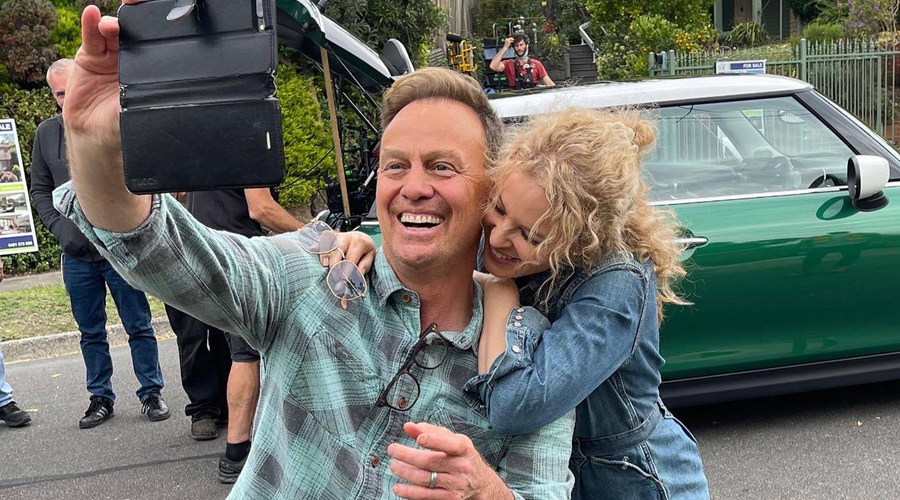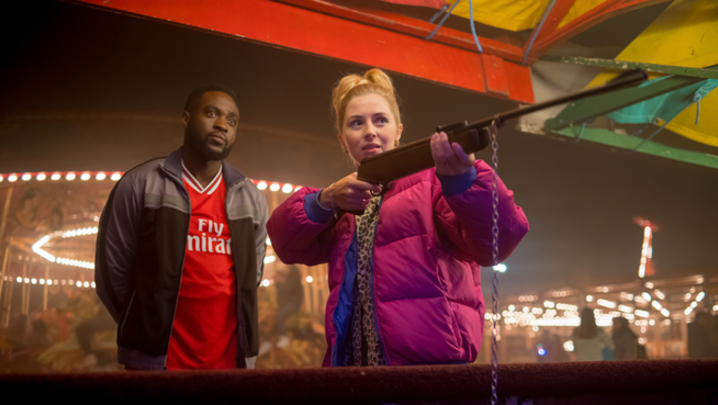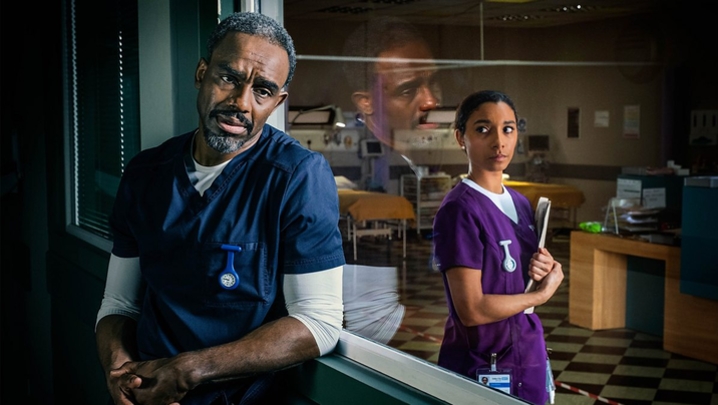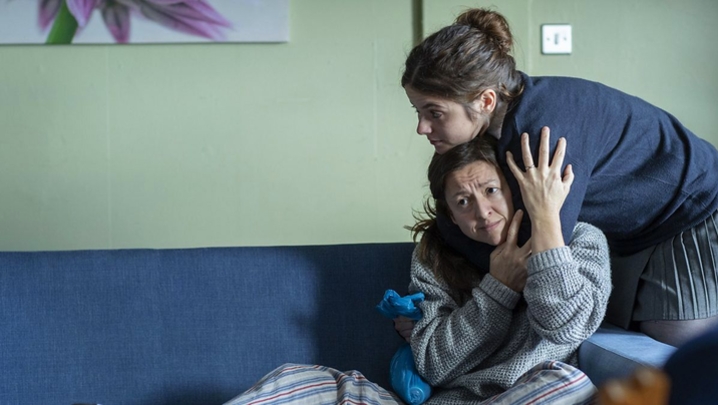Why do channels find it so hard to say goodbye to a series? Matthew Bell has a few ideas
Neighbours finally checked out over the summer, 37 years and nearly 9,000 episodes after the residents of Ramsay Street first drew TV breath.
The long-running Aussie soap, latterly shown on Channel 5 in the UK, didn’t slip away quietly – Kylie Minogue and Jason Donovan returned as Charlene and Scott Robinson, as did Hollywood stars Guy Pearce and Margot Robbie, who began their careers in the fictional town of Erinsborough.
Even fan favourite character Madge Bishop came back from the dead for the double-episode finale, which drew a peak audience of 3 million to Channel 5 at the end of July – the highest audience for the show since the station began screening it in 2008.
Channel 5 boss Ben Frow, chief content officer of channel owner Paramount UK, seemed happy enough: “I suspect there wasn’t a dry eye among the viewers as Neighbours bowed out on a high last night,” he told The Guardian. “I’m sure it will remain in people’s hearts and TV memories for a long time to come.” He may miss the ratings, though.
Last March, another long-running show, BBC One hospital drama Holby City, had its life support turned off after 23 years and more than 1,100 episodes. Its ending was “dignified”, wrote The Guardian’s Hannah Verdier, with the weekly drama “going out gracefully… no big disaster, no bomb, no gunman on the loose – just a beautifully and subtly played goodbye”.
An autopsy would record money and politics on their death certificates – Neighbours was largely funded by Channel 5, which wants to concentrate its resources on more upmarket, home-grown drama, while Holby City (shot at Elstree Studios in Hertfordshire) fell victim to the BBC’s drive to make its programme-making more regionally diverse.
When the plug is finally pulled on a TV show, the reason is rarely artistic. Falling ratings, audience ennui, the death of a star actor or the writer, scandal, the above-mentioned money and politics… pretty much anything except the realisation that a show is no longer much good.
Creative decline is usually slow. More rarely, a show “jumps the shark”, succumbing to stunts and novelty as inspiration dries up. This phrase is a reference to a ludicrous episode from 1970s and 1980s US sitcom Happy Days, in which the Fonz (Henry Winkler), in trademark leather jacket, jumped over a shark on water skis.
Mostly, though, shows struggle on, even when they have become a pale shadow or worse, a parody, of their former selves. Killing Eve is perhaps the best recent example of a series that lost its way yet was allowed to continue while audience interest flagged. “Not so much a cat-and-mouse game between Villanelle and Eve as a moggie chasing its tail in circles,” said Ben Dowell, TV writer at The Times, commenting on this year’s fourth and, thankfully, final series.
Even Steven Knight’s hitherto majestic Peaky Blinders meandered during its final run, perhaps missing family matriarch Polly Gray, following the death of the wonderful Helen McCrory. It remained a visual and aural treat, but the narrative frequently felt confused.

Factual entertainment programmes tend to go on for ever; some deservedly, such as The Great British Bake Off, which has been on air for 12 years and almost 150 episodes; others less so, like The Apprentice. To be fair to BBC commissioners, The Apprentice’s ratings have held up remarkably well over 17 years and 200-plus episodes. On average, episodes averaged 7 million viewers across this year’s series as, once again, Lord Sugar fired a succession of hopeless narcissists.
The critics were less kind. “This clapped-out format is looking more knackered than its 74-year-old figurehead,” wrote The Daily Telegraph’s Michael Hogan. He suggested that the BBC “either put it out of its misery or demand a major revamp to drag it into the 21st century”.
Too few telly people know when to finish a series. Ricky Gervais is one who does. From his first show, The Office, to his most recent, After Life, none has outstayed their welcome. On stopping the latter after three short series on Netflix, Gervais said: “It seems mad on every level, but I think it’s the right decision artistically. It’s a finite story, and that’s its strength.”
Decades ago, John Cleese was another who knew when to say enough, ending what became the nation’s favourite sitcom, Fawlty Towers, after just two series and 12 episodes.
Meanwhile, Lee Mack’s underwhelming Not Going Out – currently the longest-running sitcom on UK telly – recently notched up its 12th series on BBC One.
In pre-streaming days, when a show appeared in the schedules for one night only, poor overnight ratings would kill it off before it had the chance to build an audience. A programme that might have built on a creatively promising, if underperforming, first series never got the chance to do so.
This is rarer nowadays, but it still happens. Semi-Detached, a far superior Lee Mack sitcom, was axed last year after just one series on BBC Two. Many critics liked it – “a masterclass in chaotic comedy”, said The Guardian – but it was sunk by poor audiences; its overnight ratings were only around 400,000 viewers.
Generally, with the advent of BBC iPlayer, All 4, Netflix, Disney+ and the rest of the streaming world, a programme now has more time to find its feet. Word of mouth or social media chit-chat can create a buzz, and on-demand audiences can grow.
Shows undeservedly killed off can find new life on a new channel. Once upon a time, when TV channels were few and far between, this was more difficult, though Simon Nye’s laddish sitcom Men Behaving Badly, after flopping on ITV, found fame and fortune on BBC One in the 1990s.
Victorian crime drama Ripper Street, starring Matthew Macfadyen, MyAnna Buring and Jerome Flynn, immediately found a new backer in Amazon Prime when the BBC unaccountably axed it.
Channel 4 cancelled Top Boy and that appeared to be the end for the gritty London crime series, created by celebrated Irish writer Ronan Bennett and starring Ashley Walters. Yet, six years later, encouraged by Canadian rapper and super-fan Drake, Netflix brought it back. Drake even nabbed himself an executive producer credit on the returning series.
Some series refuse to die. Ditched first by Channel 4 and then Channel 5, Orwellian TV nightmare Big Brother is set to return to ITV2 next year.
Eventually, if the plug isn’t pulled on a programme, it can become a TV institution. Eight have racked up 60-plus, unbroken years on British TV. BBC current affairs programme Panorama is the oldest, having been on air since the year of the Queen’s coronation, 1953.
A few are niche – The Sky at Night and Welsh-language religious series Dechrau Canu, Dechrau Canmol – but the country would rise from its sofa as one if either the Eurovision Song Contest, Coronation Street or Blue Peter were axed. Commissioners wouldn’t dare – would they?






